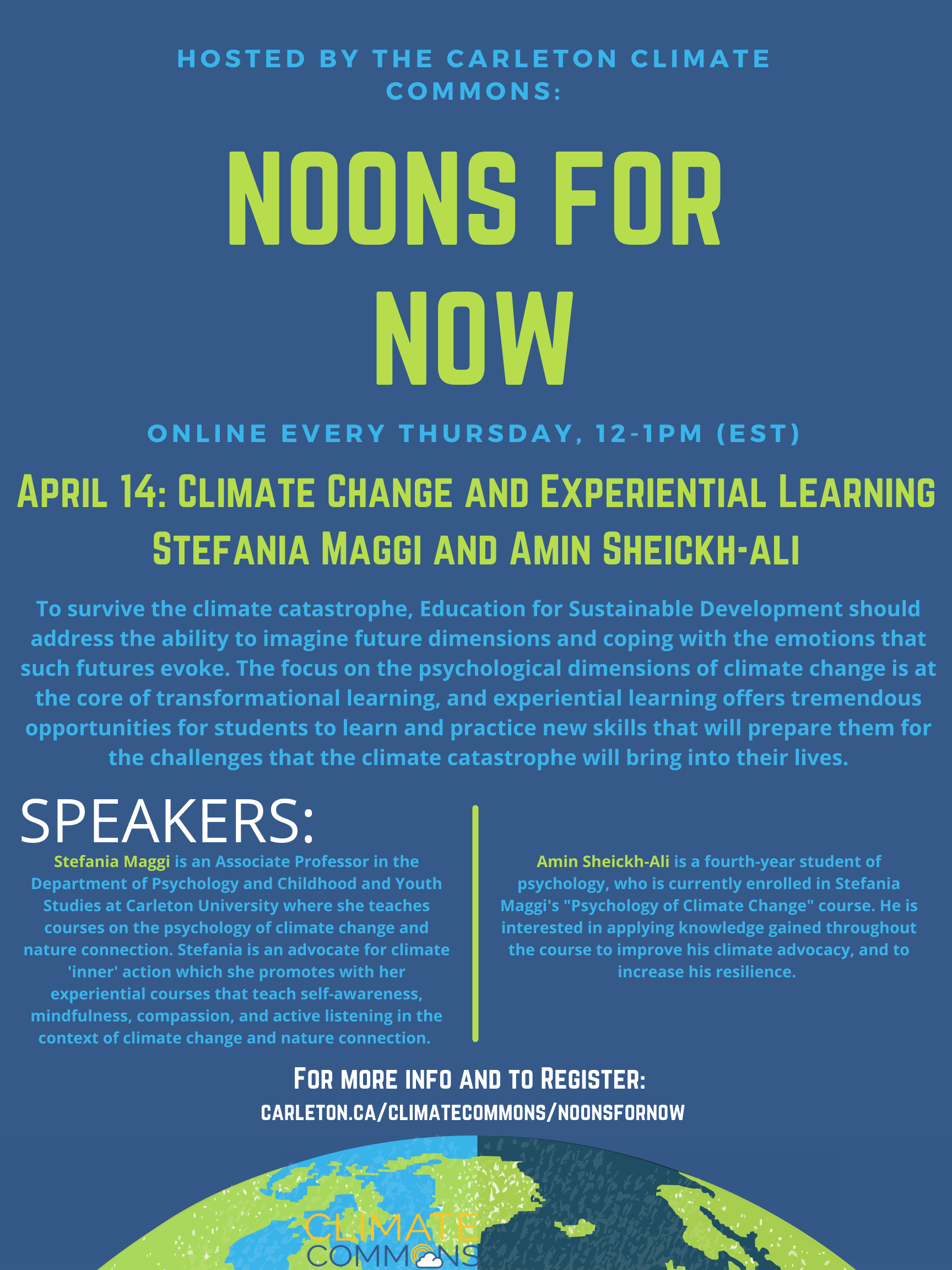
Amid the flourishing of strategies designed to support adaptation of our natural, physical, and social environments, progressive educational scholars are also calling for more action within educational institutions to promote a deeper transformation in students of all ages, one that is more intimate and personal, and that they believe is essential for future survival. To survive the climate catastrophe, they argue, key competences that Education for Sustainable Development should address include the ability to imagine future dimensions and coping with the emotions that such futures evoke. The focus on the psychological dimensions of climate change is at the core of transformational learning, and experiential learning offers tremendous opportunities for students to learn and practice new skills that will prepare them for the challenges that the climate catastrophe will bring into their lives.
Amin Sheickh-Ali is a fourth-year student of psychology, who is currently enrolled in Stefania Maggi’s “Psychology of Climate Change” course. He is interested in applying knowledge gained throughout the course to improve his climate advocacy, and to increase his resilience.
Stefania Maggi is Associate Professor in the Department of Psychology and Childhood and Youth Studies at Carleton University where she teaches courses on the psychology of climate change and nature connection. Stefania is an advocate for climate ‘inner’ action which she promotes with her experiential courses that teach self-awareness, mindfulness, compassion, and active listening in the context of climate change and nature connection.
Resource List
Leah Cardamore Stokes, “A Field Guide for Transformation,” from All We Can Save: Truth, Courage, and Solutions for the Climate Crisis, ed. Ayana Elizabeth Johnson and Katherine K. Wilkinson (2020).
Beth McMurtie, “A ‘Stunning’ Level of Student Disconnection,” The Chronicle of Higher Education, April 5, 2022.
Climate Work in Psychology:
Robert Gifford’s “Dragons of Inaction” Matrix for diagnosing climate inaction. More information on Gifford’s work can be found here.
APA’s Climate Task Force and Advocacy work.
Experiential Course Outlines:
Stefania Maggi’s PSYC4001F: The Psychology of Climate Change
Brenda Vellino’s ENGL3920: Literary Ecological Fieldwork
To Dos:
- We discussed other examples of experiential class activities that we’ve tried in the past; for instance, asking students to have a conversation about climate issues with someone they normally wouldn’t.
- Sharing experiential and climate-focused syllabi, as well as creating educational resources to help others with environmentally-informed course creation.